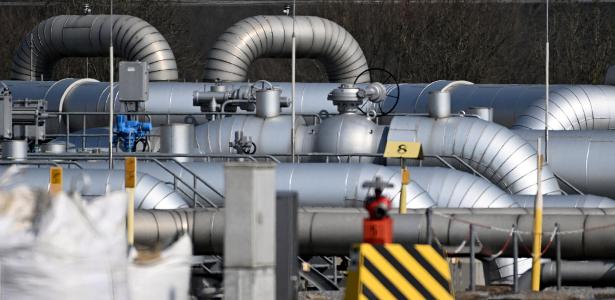
Russian President Vladimir Putin today signed a decree that regulates the trade of natural gas with countries considered “hostile” such as the United States and all members of the European Union.
According to the Russian government, the text comes into force from tomorrow (1st) and requires Western companies to open current accounts with Russian banks in rubles to buy the country’s gas.
“If such payments are not made, we will consider defaults on the part of buyers, with all consequences,” Putin said.
Nobody sells us anything for free, and we don’t even donate. This means that in case of non-payment in rubles, existing contracts will be closed.
Russian President Vladimir Putin
A day earlier, Putin told Italian Prime Minister Mario Draghi that existing agreements would be respected. Russia supplies a third of Europe’s gas.
The move is a form of retaliation against countries that have imposed economic sanctions against Russia – blocking nearly $300 billion in Russian reserves abroad – and it is a way to strengthen the ruble against the backdrop of a deep recession. There is effort too. Financial Crisis.
The decision to impose payments in rubles gave a boost to the Russian currency, which fell to a historic low after the February 24 invasion, but has since recovered.
The United States and the United Kingdom have already announced sanctions on Russian oil and gas imports, but the European Union is more dependent on Moscow in terms of energy.
Countries in the bloc work to reduce this dependence, but this is a medium- and long-term objective – Italy, for example, projects a period of up to 30 months to become independent of gas from Russia.
Last week, the European Union had already reached an agreement to increase imports of liquefied natural gas (LNG) from the United States. Putin declared, “America wants to solve its problems at the expense of others. It tries to get Europe to buy American gas, which is more expensive.”
Western reaction to Russian decision
Following the Russian president’s announcement, German Chancellor Olaf Scholz said that companies in the country would continue to honor their contracts in the euro.
“We looked at the contracts, and it is written that the payment is in euros. I clarified this in the phone call [com Putin] That it will remain as it is,” said the head of the German government, who spoke with Putin yesterday.
French Economy Minister Bruno Le Maire assured that the country “will not accept in any way to pay for gas in currencies other than those stipulated in the contract”.
Le Maire also highlighted that the French government is already preparing for the eventual interruption of supplies.
*With ANSA, AFP and Reuters



